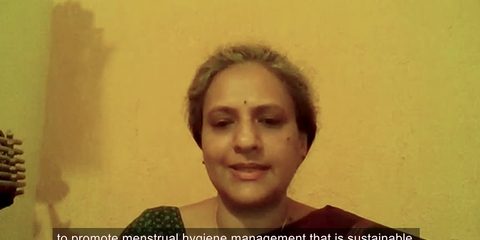
Deep dive: Perspectives, practices, and environmental footprints related to menstrual hygiene management in India
It is crucial that awareness and uptake of environment-friendly menstrual hygiene practices increase, but we must be aware of the challenges and misinformation that exist in this space. The most widely used menstrual products (disposable sanitary pads) are non-biodegradable so their disposal and waste management raise major
environmental concerns. And while awareness of different types of menstrual products and practices (including more environment-friendly approaches) is slowly increasing in India,
misconceptions remain around associated hygiene and related matters. To further explore this, The George Institute’s Global Women's Health Program conducted a pilot study on “Perspectives, practices, and environmental footprints related to menstrual hygiene among girls and women in India”. The research team used a qualitative and exploratory approach to familiarise themselves with prevalent menstrual hygiene practices and perspectives, and life cycle assessment to estimate carbon dioxide emissions and freshwater use associated with the sourcing, manufacture, use, and post-use treatment and disposal of menstrual hygiene products. You can hear findings from the study in The Scan podcasts focused on menstrual hygiene management. In the second episode with this focus, we discuss the stigma and challenges around sustainable menstrual health practices in India with experts Dr JK Lakshmi, Senior Research Fellow at The George Institute, Kamal Nayak, Founder of Good Universe, and Dr Arundati Muralidharan, a public health professional engaged in research and policy advocacy in menstrual health. The discussion also includes the perspectives of Archana Sali, an IT professional and Amrita Suresh, author of a book on menstrual cups.
Podcast Series

The Scan podcast from The George Institute for Global Health explores the latest research, emerging evidence, and crucial progress towards developing practical approaches towards better treatments, better care and healthier societies globally.





